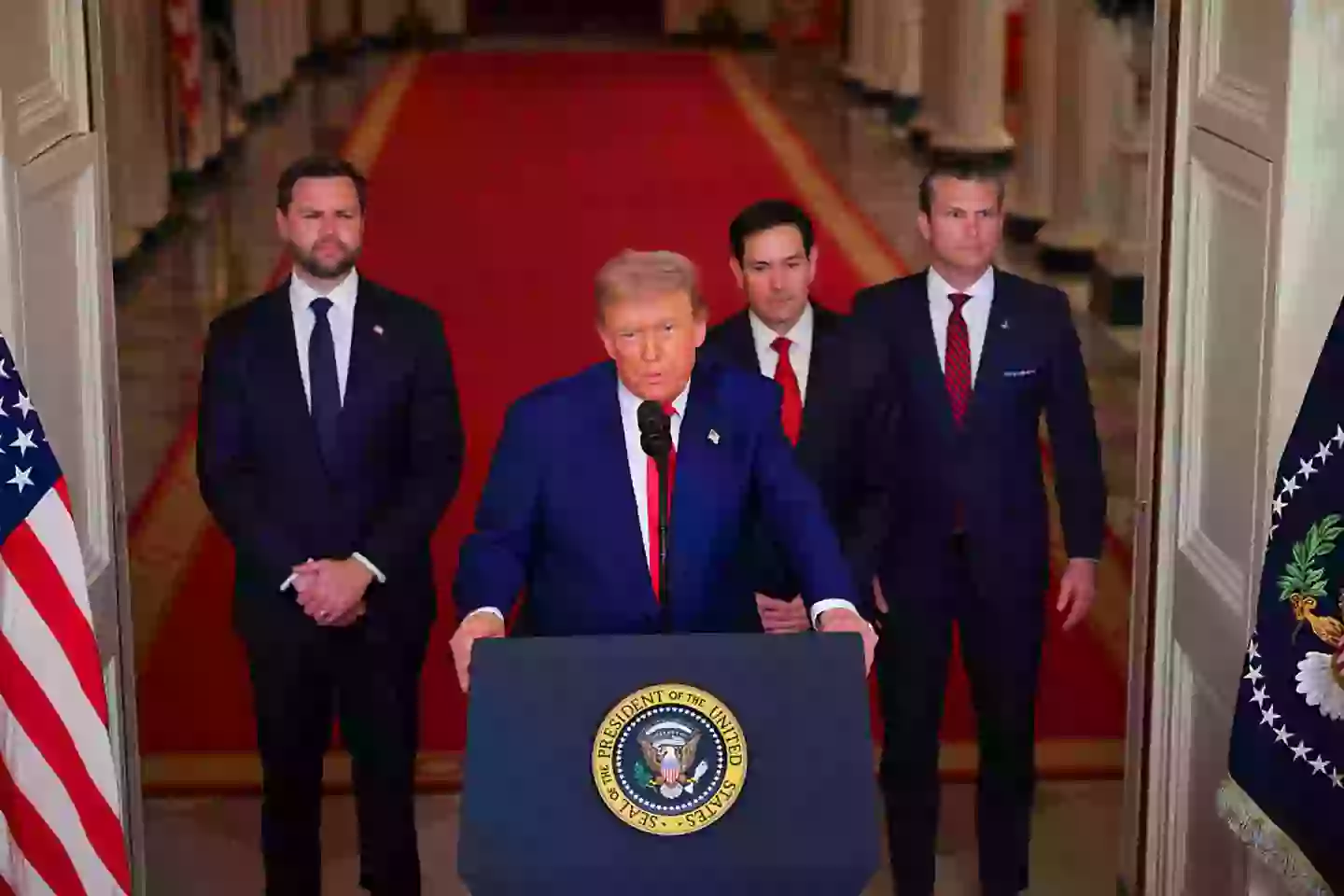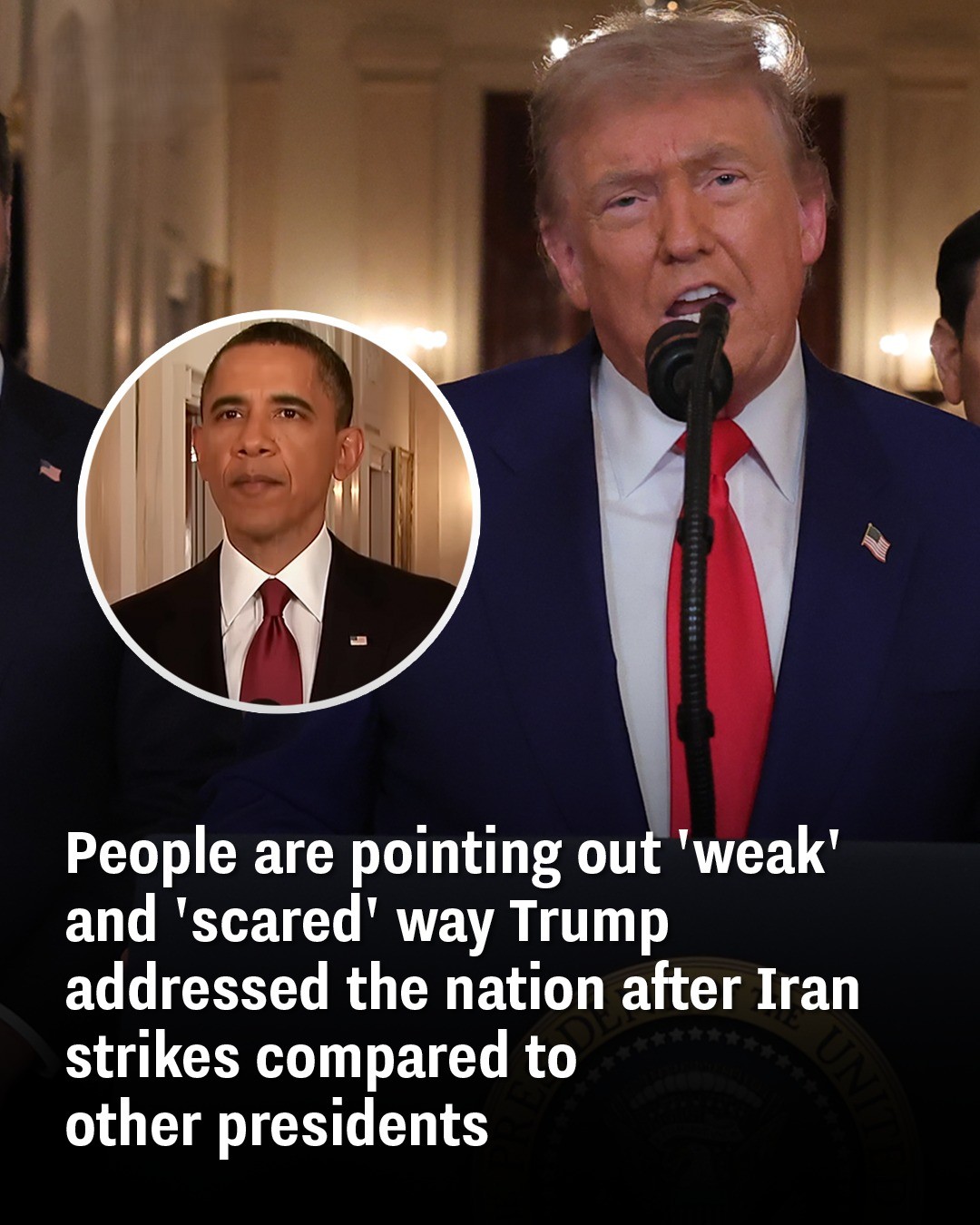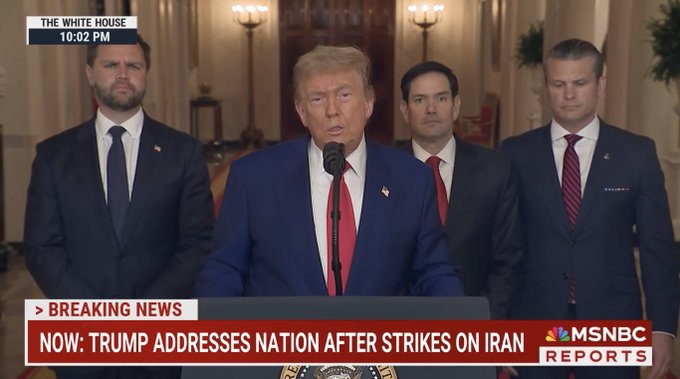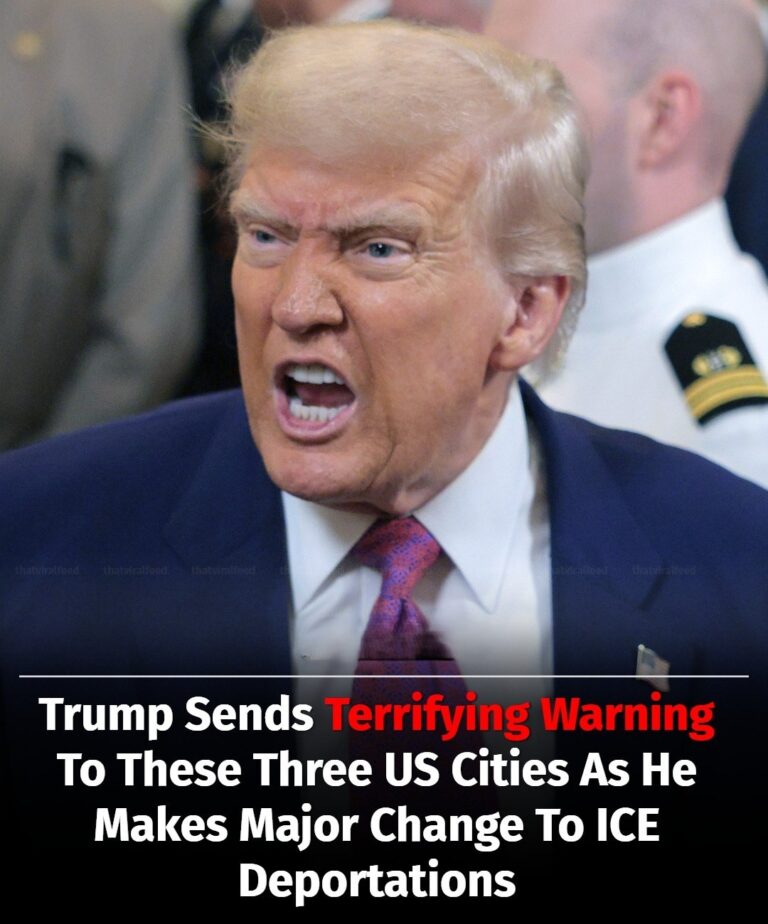People are pointing out ‘weak’ and ‘scared’ way Trump addressed the nation after Iran strikes compared to other presidents
President Donald Trump is being dubbed ‘weak’ and ‘scared’ by some people online for the way he addressed the nation after confirming the US had launched an attack on Iran.
Trump ordered the attack on Iran’s key nuclear facilities on Saturday night (June 21), with the president declaring the mission a ‘success’ after it ‘completely obliterated’ the Fordow, Natanz, and Esfahan nuclear sites.
The US launched the assault amid growing concerns around Iran’s nuclear plans, with several of its key allies having since spoken out on the attack including the UK, Japan, Australia, and France.
Worries about the international fallout of the bombings have been growing, however, with fears over how Iran will retaliate after it threatened it would be coming up with a ‘decisive response’ to the US attack.
Iran’s response seemingly came today (23 June), with the country launching missiles towards US air bases Qatar and Iraq.
Now, the president is facing scrutiny over the way in which he addressed the nation following the Iran bombings, drawing in comparisons to former US leaders.
The POTUS issued a statement shortly after confirming the nuclear sites had been bombed over the weekend, saying: “Our objective was the destruction of Iran’s nuclear enrichment capacity and a stop to the nuclear threat posed by the world’s number one state sponsor of terror. Tonight, I can report to the world that the strikes were a spectacular military success.
“Iran’s key nuclear enrichment facilities have been completely and totally obliterated. Iran, the bully of the Middle East, must now make peace – if they do not, future attacks will be far greater and a lot easier.”
After Trump spoke to Americans and people across the globe, many took to Twitter to discuss his body language and the address overall.
And in doing so they’ve noticed a striking difference to that of fellow presidents who have provided similarly seismic news.
Alongside snaps of Joe Biden, Barack Obama and George W. Bush similarly addressing the nation, one Twitter user wrote: “I have never seen a US President that was so weak and so scared about taking military action that he needed his yes-man entourage to keep him company at the podium in the Cross Hall.”
Vice President JD Vance, Defence Secretary Pete Hegseth and Secretary of State Marco Rubio stood in the wings behind Trump during the address.
A second on Twitter added: “I think this is why Trump looked so uncomfortable during that very short speech. The ball is Iran’s court, he’s hoping it won’t spike it.”
While a third remarked: “Never seen President Trump so nervous. I think he fears Irans retaliation, possibly nukes?”
And a fourth commented: “@realDonaldTrump looked scared and his tone is one of uncertainty! Even he doesn’t know what forces he may have unleashed and what his legacy will be if America is dragged into a broader war in #Iran!”
In the aftermath of the shock attack, experts are expressing concerns over potential rises in oil and gas prices as well as threats of terror attacks from within the US due to something known as sleeper-cells, which are people already on US soil who attack when given orders from their government overseas.

Trump addressed the nation following the Iran attack (Carlos Barria – Pool/Getty Images)
Before Iran’s strikes on US air bases today, Israel launched a fresh attack on Iran, targeting ‘access routes’ to Iran’s Fordow nuclear site, which was among those damaged during the US’ strike over the weekend.
Israel’s defence minister said it is striking the nation’s capital Tehran with ‘unprecedented force’, while Trump recently floated the idea of a regime change in Iran.
The conflict erupted on June 13 when Israel launched a large-scale attack on Iran’s nuclear sites which killed nuclear scientists and high-profile military officials.
In retaliation, Iran fired back at Israel, with the two nations locked in a back-and-forth strike exchange in the days since.
Several nations across the world, including the UK, have called for a de-escalation in the conflict and have urged Iran to come to the negotiation table.







